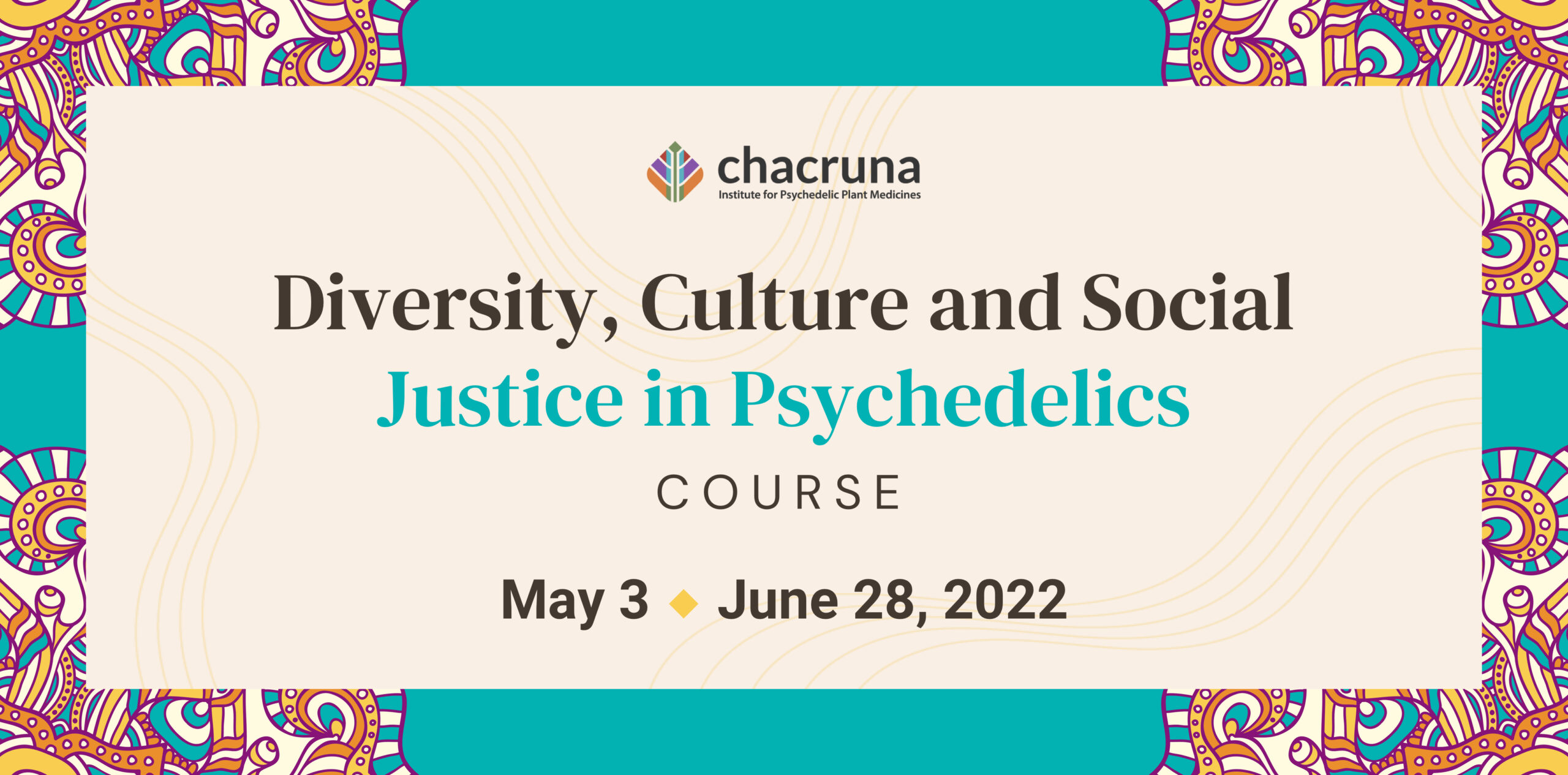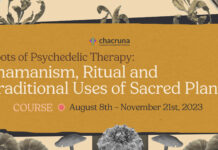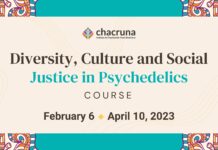May 3rd – June 28th, 10am-12pm PST/1pm-3pm EST
Price $650 USD
Price $280 for CE credits
This course, taught by leading experts and the first of its kind in the psychedelic field, will teach students to consider the cultural, social, historical, and economic context that influences the so-called “psychedelic renaissance.” Students will be introduced to basic concepts around psychedelics and justice, diversity, equity, and inclusion (JEDI). The goal of the course is to explore the ways in which psychedelics influence and are influenced by factors such as social justice, privilege, and diversity and to better understand their reciprocal influences on psychedelic science, therapies, and praxis. Topics include: implicit bias, queer aspects, intersectionality, cultural humility, social identity, power and privilege, healing the racial divide, uses of Indigenous plant medicines, and challenges around their mainstreaming and globalization. This course is intended to be intellectual, personal, and experiential. We will examine structural issues that act as systemic barriers to JEDI efforts. Students will also be challenged to think critically and confront aspects of themselves, their beliefs, behaviors, and needed areas of growth, such as their individual, familial, and group legacies of privilege and disadvantage, their personal commitments to social justice, advocacy, and social change in the psychedelic community and the world more broadly. These perspectives are crucial for deepening our understanding of the expanding future of psychedelic medicine in ways that are equitable and just.
Learning Objectives
At the end of the program, participants will be better able to…
- Analyze how crime and drug policies impact minoritized peoples in the US
- List and explain terms frequently used in the study of race/ethnicity
- Analyze how racism impacts the mental health of people of color
- Explain the potential for psychedelics to relieve racial stress and trauma
- Discuss intersectionality theory and praxis
- Discuss the importance of intersectional cultural humility in psychedelic-assisted therapy and research
- Discuss dynamics of power and privilege through a somatic, healing-centered and trauma-informed lens
- Describe types of power and the embodied experiences of working across power differentials
- Discuss the history of psychedelic treatment of gay people in psychedelic therapies designed to alter their sexual or gender identities
- Analyze the current challenges sexual and gender minorities may face when seeking psychedelic therapy
- Explain core issues surrounding the mainstreaming and globalization of psychedelics and the way they affect marginalized groups
- List ways in which non-indigenous folks can honor indigenous knowledge and practices and give back to indigenous communities
Classes
Click on the class to read the description
Class One – Introduction
Tuesday 5/3/22, 10am–12pm PST/1pm-3pm EST
Professors: Dr. Bia Labate, Dr. Monnica Williams and Dr. NiCole T. Buchanan
In this initial class, students will introduce themselves to others in the course, be introduced to the professors and their backgrounds, and gain an understanding of the curriculum and program. Students will leave with preparation for the following classes being taught and a general understanding of the topics that will be discussed throughout the course.
Class Two – Psychedelics, bias and the-isms
Tuesday 5/10/22, 10am–12pm PST/1pm-3pm EST
Professor: Dr. NiCole T. Buchanan
There is a widespread belief among those within the psychedelic community that, once ingested, psychedelic substances connect us to all living creatures, and this interconnectedness negates the potential for bigotry and bias. Therefore, as a result of these effects, the psychedelic community is welcoming, inclusive, and devoid of the -isms (racism, classism, heterosexism, etc.). In this class we will define bias, microaggressions, and structural oppressions (the -isms), then we will explore how they manifest in psychedelic science and practice.
Class Three – Psychedelics and Racial Justice: Equity and Access
Tuesday 5/17/22, 10am–12pm PST/1pm-3pm EST
Professor: Dr. Monnica Williams
Psychedelics have been studied for the treatment of numerous mental health conditions, as an avenue for personal growth, and for enhancing well-being. However, psychedelic research studies have largely excluded people of color, leaving important questions unaddressed for these populations. Additionally, the War on Drugs has created racial barriers to access and estrangement from many psychedelic communities, even as decriminalization is expanding. Dr. Williams will discuss the impact of first-wave drug research abuses, social policies, and stereotypes on communities of color. She will discuss ethnic minority mental health, and how psychedelic therapies may help or hinder healing for racialized individuals. Also discussed are next steps in ensuring that access to culturally-informed care is prioritized, including the importance of culturally-informed approaches and training experiences of psychedelic therapists of color, as several psychedelics move into late phase trials and expanded access.
Class Four – Queer Aspects of Psychedelic Experience
Tuesday 5/24/22, 10am–12pm PST/1pm-3pm EST
Professor: Dr. Clancy Cavnar
This class will explore the dimension of gender-diverse people and sexual orientation in the context of psychedelics. Psychedelics have been used by LGBTQA+ communities for many years as part of the creative source and self-therapy practiced among cultural outcastes. We will look at how queer people have used psychedelics to build community and explore identity. This class will also examine a dark period when psychedelics were used to treat homosexuality (“conversion therapy”) in clinics internationally, sometimes in aversive therapy scenarios. We will look at the ways psychedelic therapy can be made more accessible to gender- and sexually-diverse people, and the ways that queer people might be accommodated and treated with more understanding. Participants will become familiar with the particular needs of the queer population in regard to treatment, their struggle to have aspects of gender and orientation respected in clinical contexts with psychedelics, and the ways psychedelics can help resolve some of the trauma of being queer in a homophobic society.
Class Five – Intersectionality & Cultural Humility in Psychedelics
Tuesday 5/31/22, 10am–12pm PST/1pm-3pm EST
Professor: Dr. NiCole T. Buchanan
Psychological science, the psychedelic community, society, and individuals have been slow to incorporate intersectionality as a concept and as a framework for conducting research and informing healing practices. This reality limits our understanding of how intersectionality impacts our daily lives and our practices as psychedelic practitioners and scholars. In this class, we will review intersectional theory and praxis broadly. We will examine the role of intersectional cultural humility in psychedelic-assisted therapy and identify how to fully incorporate intersectional social justice in psychedelic science and practice.
Class Six – Social Identity, Power & Privilege: Embodied Examination
Tuesday 6/7/22, 10am–12pm PST/1pm-3pm EST
Professor: Dr. Diana Quinn
To be ethical practitioners of psychedelic-assisted therapy, therapists must engage in an ongoing practice of examining their own social identities and sites of power and privilege. Because the contexts in which we are situated—family, community, institutional, societal— inform our lived experiences at the neurobiological level, in this course we take a somatic approach to exploring positionality. We ground our discussion of intersecting systems of oppression (based on race, ethnicity, religion, size, gender, sexual orientation, disability status, class, age, immigration status, etc.) in the awareness that structural oppression, not identities themselves, drives social determinants of health. We explore our own positionalities, and consider power and privilege dynamics applied to psychedelic case studies with clients identifying as racial, gender, and sexual minorities.
The objective of this course is to assist the psychedelic guide in developing a structural analysis through which to approach working with clients experiencing structural oppression. We will take a healing-centered, trauma-aware approach with a focus on building capacity for discomfort through somatic awareness and embodiment practices. With an understanding that the work is ongoing and imperfect, we will cover intent and impact, accountability, and rupture and repair.
Class Seven – Critical Perspectives on Contemporary Uses of Indigenous Plant Medicines
Tuesday 6/14/22, 10am–12pm PST/1pm-3pm EST
Professor: Dr. Bia Labate
This class will first offer an overview of traditional and contemporary uses of ayahuasca in the Amazon, peyote in Mexico and the US, and psilocybin mushrooms in Mexico. This will include contemplating cross-cultural concepts such as plant spirits, relationship to non-humans, and healing as a holistic affair. We will next address the main challenges related to the current globalization, commodification, and mainstreaming of psychedelic plant medicines. We will examine topic such as colonization, tourism, cultural appropriation, regulation, and conservation, including anthropological and Indigenous perspectives. Initiatives by the psychedelic movement to celebrate the traditional “wisdom holders,” to acknowledge the historical context of plant medicines, and attempts to include Indigenous voices in conferences, as well as emergent discourses around the need to financially compensate Indigenous people, are often permeated by cultural misunderstandings of what constitutes healing, traditional knowledge, and the plants themselves. While some in the psychedelic movement claim that plant medicines improve their health, cure the planet, and fiercely advocate for “cognitive freedom” and decriminalization, Indigenous people continue to be exploited, oppressed and murdered across the Americas. There continues to be a lack of support for Indigenous resistance to their systematic oppression, the support of land rights, ecological restoration, healthcare, anti-discrimination, food security, intellectual property, and so forth. What’s more, the globalization and commodification of psychedelics is fast becoming complicit with the economic forces at the root of these problems. We hope this class will help to better frame questions around authenticity, Indigeneity, and commercialization of Indigenous knowledge and sacred medicines.
Class Eight – Understanding Racial and Ethnic Minorities and the Role of Entheogens in Healing the Racial Divide
Tuesday 6/21/22, 10am–12pm PST/1pm-3pm EST
Professor: Dr. Darron Smith
The class will examine the economic and political conditions in US society that give rise to the development and persistence of systemic racism and other forms of oppression that stigmatized minorities (Black, Indigenous and people of color) face in virtually every domain from educational policy to health care equity. Race still matters. Participants will learn the historical origins of white racial ideologies and how those concepts saturate the imagination of most Americans (whether or not they realize it) while familiarizing themselves with basic sociological theory. This course is intended to give students a broad understanding of race relations in society and how psychedelic (i.e., MDMA, psilocybin, DMT, ayahuasca) might be helpful to heal the racial divide. As such, the fundamental objective of this course is to learn concepts germane to study of racial/ethnic relations in the US.
Class Nine – Conclusion
Tuesday 6/28/22, 10am–12pm PST/1pm-3pm EST
Professors: Dr. Bia Labate and Dr. Monnica Williams
In this final class, we will strive to summarize everything taught throughout the course. In doing so, we will recap the main concepts, highlight the main moments, and give folks a chance to voice any significant takeaways about the topics discussed. We will also do a critique of the course and think of ways to improve it for future teachings.
Professors

Monnica T. Williams is a clinical psychologist and Associate Professor at the University of Ottawa, in the School of Psychology, where she is the Canada Research Chair in Mental Health Disparities. She is also Clinical Director of the Behavioral Wellness Clinic. Her research focuses on African American mental health, culture, and psychopathology, and she has published over 100 scientific articles on these topics. Current projects include the assessment of race-based trauma, unacceptable thoughts in OCD, improving cultural competence in the delivery of mental health care services, and interventions to reduce racism. She gives diversity trainings nationally for clinical psychology programs, scientific conferences, and community organizations. She currently is Chair of their Academic Training & Education Standards (ATES). She is also a member of the Scientific Advisory Board of the International OCD Foundation, and co-founded their Diversity Council. Dr. Williams is a member of Chacruna’s Racial Equity and Access Committee.
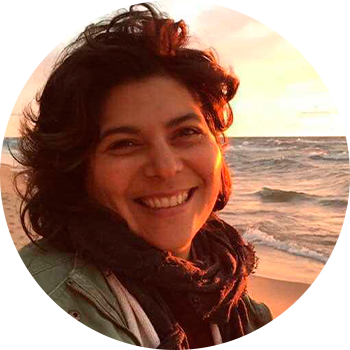
Diana Quinn ND (she/her) is a queer Chicana and naturopathic doctor with a clinical focus in integrative mental health, somatics, and mind-body medicine. She is a graduate of the CIIS Psychedelic-Assisted Therapies and Research program. Her work is grounded in healing justice, a framework that reimagines wholeness at the intersection of intergenerational trauma, current structures of oppression, and a generative and co-created future. She co-founded Psychedelic Liberation Collective, recipient of the 2021 Source Research Foundation Community Grant and BIPOC Award. Dr. Quinn sits on the Board of Psychedelic Medicine and Therapies, is a member of the Chacruna Institute Racial Equity and Access Committee, and serves on multiple advisory boards dedicated to building ethical integrity, equity, accessibility, and structural competency in the field of psychedelics.

Darron T. Smith is a NCCPA-certified physician assistant and faculty member in the department of sociology at the University of Memphis. His areas of research and scholarship examine US-based systems of racial oppression and systemic inequality found in all domains across society, including healthcare, the family (transracial adoption), healthcare disparities, religion, sport, culture, and politics. Dr. Smith’s current research and practice intertwine the study of neurosociology, race-based trauma, and mental illness by looking at the impact of neurofeedback versus MDMA-assisted psychotherapy on brainwave activity in individuals with racial trauma (PTSD) using EEG technology. He is featured in the CBS Sports documentary, The Black 14: Wyoming Football 1969, as well as the Loki Mulholland film on transracial adoption, Black, White & Us: Love is Not Enough. He is the author of When Race, Religion & Sports Collide: Black Athletes at BYU and Beyond. Dr. Smith is a member of Chacruna’s Racial Equity and Access Committee and board member of the American Psychedelic Practitioners Association.
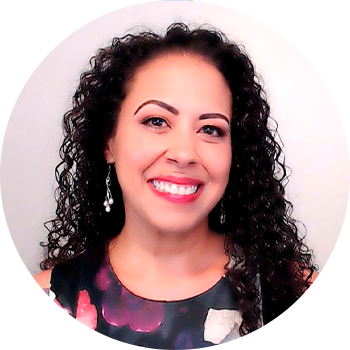
NiCole T. Buchanan, Ph.D., is Professor of Psychology at Michigan State University and Clinical Director and Founder of Alliance Psychological Associates, PLLC. She serves on the inaugural Board of Directors of the American Psychedelic Practitioners Association and the Board of Directors and the Racial Equity and Access Committee for the Chacruna Institute for Psychedelic Plant Medicine. Dr. Buchanan has trained with MAPS’ MDMA-assisted therapy, the CIIS’ Certificate for Psychedelic Research and Therapy, and the Polaris Insight Center’s Ketamine-Assisted Psychotherapy training. She is a fellow of the Association for Psychological Science, four separate divisions of the American Psychological Association, and has received numerous national and international awards for her research, teaching, clinical work, and professional service. She is an accomplished speaker, writer, and scholar, with more than one hundred journal articles, book chapters, and research reports focusing on diversity, equity, and inclusion, workplace behaviors and their impact on organizational climate, employee well-being, and professional development. Her work has been highlighted in hundreds of media outlets including CBS News, the Huffington Post, and Essence Magazine and she has been a featured speaker for several programs including TEDx and National Public Radio (NPR).
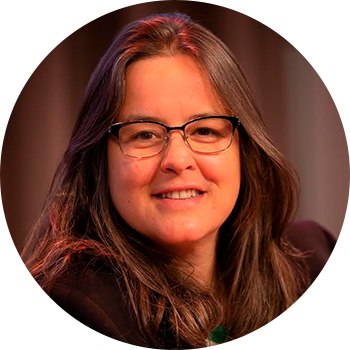
Dr. Beatriz Caiuby Labate (Bia Labate) is a queer Brazilian anthropologist based in San Francisco. She has a Ph.D. in social anthropology from the State University of Campinas (UNICAMP), Brazil. Her main areas of interest are the study of plant medicines, drug policy, shamanism, ritual, religion, and social justice. She is Executive Director of the Chacruna Institute for Psychedelic Plant Medicines (https://chacruna.net, https://chacruna-iri.org, https://chacruna-la.org) and serves as Public Education and Culture Specialist at the Multidisciplinary Association for Psychedelic Studies (MAPS). She is also Adjunct Faculty at the East-West Psychology Program at the California Institute of Integral Studies (CIIS) and Visiting Scholar at Naropa University’s Center for Psychedelic Studies. Additionally, she member of the Oregon Psilocybin Advisory Board’s Research Subcommittee, and Advisor at the Synthesis Institute. Dr. Labate is a co-founder of the Interdisciplinary Group for Psychoactive Studies (NEIP) in Brazil and editor of its site since. She is author, co-author, and co-editor of twenty-four books, two special-edition journals, and several peer-reviewed articles (https://bialabate.net).

Clancy Cavnar has a doctorate in clinical psychology (Psy.D.) from John F. Kennedy University in Pleasant Hill, CA. She currently works in private practice in San Francisco, and is Co-Founder and a member of the Board of Directors of the Chacruna Institute for Psychedelic Plant Medicines. She is also a research associate of the Interdisciplinary Group for Psychoactive Studies (NEIP). She combines an eclectic array of interests and activities as clinical psychologist, artist, and researcher. She has a master of fine arts in painting from the San Francisco Art Institute, a master’s in counseling from San Francisco State University, and she completed the Certificate in Psychedelic-Assisted Therapy program at the California Institute of Integral Studies (CIIS). She is author and co-author of articles in several peer-reviewed journals and co-editor, with Beatriz Caiuby Labate, of ten books. For more information see: http://www.drclancycavnar.com.
Information on Continuing Education Credit for Health Professionals
• CE credits for psychologists are provided by the Spiritual Competency Academy (SCA) which is co-sponsoring this program. The Spiritual Competency Academy is approved by the American Psychological Association to sponsor continuing education for psychologists. Spiritual Competency Academy maintains responsibility for this program and its content.
• The California Board of Behavioral Sciences accepts CE credits for LCSW, LPCC, LEP, and LMFT license renewal for programs offered by approved sponsors of CE by the American Psychological Association.
• LCSW, LPCC, LEP, and LMFTs, and other mental health professionals from states other than California need to check with their state licensing board as to whether or not they accept programs offered by approved sponsors of CE by the American Psychological Association.
• SCA is approved by the California Board of Registered Nursing (BRN Provider CEP16887) for licensed nurses in California. RNs must retain their certificate of attendance for 4 years after the course concludes.
•For questions about receiving your Certificate of Attendance, contact [email protected].
For questions about CE, contact Spiritual Competency Academy at [email protected].
Please explore and also consider registering for our other courses and workshop that are part of our Studies in Psychedelic Justice. Taking all four as a bundle allows you to become a Chacruna member at no additional membership fee.
Topics include: implicit bias
Take a minute to browse our stock:
Did you enjoy reading this article?
Please support Chacruna's work by donating to us. We are an independent organization and we offer free education and advocacy for psychedelic plant medicines. We are a team of dedicated volunteers!
Can you help Chacruna advance cultural understanding around these substances?










